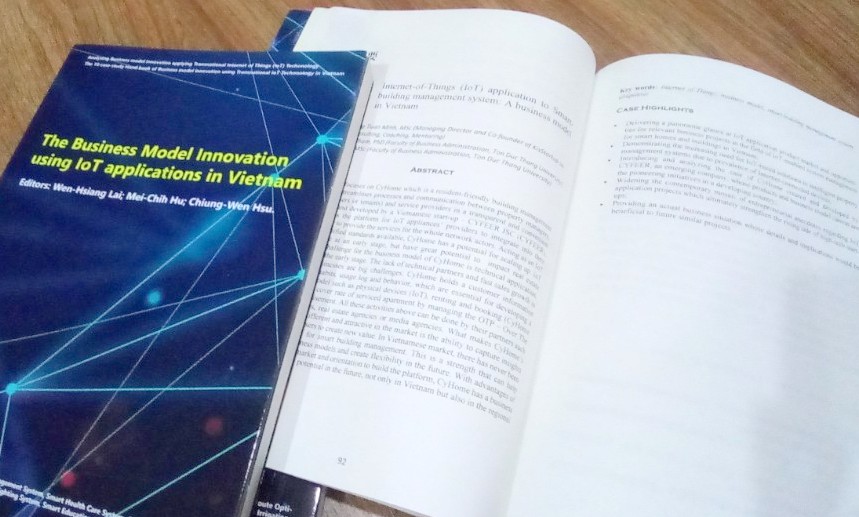 IoT application in Smart energy in Smart cities – from idea to practice
IoT application in Smart energy in Smart cities – from idea to practice
Authors: Minh Nguyen Dang Tuan (KisStartup Innovation Consulting, Coaching, Mentoring), Thi Minh Ly Pham (Innovation and Entrepreneurship Research Group, Faculty of Business Administration, Ton Duc Thang University), Nhan Nguyen Thanh (Faculty of Business Administration, Ton Duc Thang University)
Abstract
AMI (means “friend” in French and “trustworthy” in Hebrew) is 1st prize winner at Techfest2017- an annual event for tech startups in Vietnam by Ministry of Science and Technology. They optimize the entire process by combining software, IoT hardware and artificial intelligence to provide smart energy, smart city and smart safety. It helps to reduce headcount, cost and give better experiences and services to tenants.
AMI is solving the problems of real estate management like buildings, apartments for rent. Since current situations in the market is that information is not transparent, professional management, and too much data archiving on paper. There is no formatting model in recent digitization and new technology applications on how to create employees to test and ensure quality of life and security. The business model is currently the first in the market with the strength of combine both hardware and software strength in IoT and Artificial Intelligence. The project already passed product-market fit and is working on the left-hand-side of the business model canvas. Partnership with big corporates will enable them to scale the products and make further applications.
AMI’s business model is B2B where it focuses on serving landlord or real-estate business and city-level of energy use. First launched in 2016, after 1 year, the current status of the project is already clear in terms of revenue model and early adopters. Although it might be hard to change the mindset of the market, the product has potential of regional scalability. Big corporates and local governmental authorities have already worked with the company in scaling up the project.
Keywords: Smart city energy saving, IoT and AI for smart city.
AMI's Business model: Conventionally, smart cities business model approach the market first through customer segments from which the value proposition is created. Afterwards, the business value is described as utilizing key resources from the government sector, the firm sector and the university. The other canvas elements are optimized to run business model, such as key partner, key activities, channels, cost structure,
revenue structure. This approach is widely considered as most appropriate for BMC in smart-cities. As this paper also follows Diaz’s direction of focusing on the value proposition of smart city, smart energy, the business model of the case is analyzed with the approach from value proposition for each customer in the multi-sided business model to generalize the impact to smart city.
To download the casestudy, email us at: hello@kisstartup.com
Source: 2018 Business opportunities and innovative models driven by the Internet. Cases in Vietnam. Organizers: TDT University, Feng Chia University, PWC, TSing Hua University,
 The book published in 2019 is a result of gathering 10 case studies on business model innovation using IoT applications in Vietnam. 7 out of 10 case studies were conducted by researchers from KisStartup's research team in collaboration with lecturers and researchers of Ton Duc Thang University. The book was published as part of Silicon Valley Asia project, funded by the Government of Taiwan.
The book published in 2019 is a result of gathering 10 case studies on business model innovation using IoT applications in Vietnam. 7 out of 10 case studies were conducted by researchers from KisStartup's research team in collaboration with lecturers and researchers of Ton Duc Thang University. The book was published as part of Silicon Valley Asia project, funded by the Government of Taiwan.